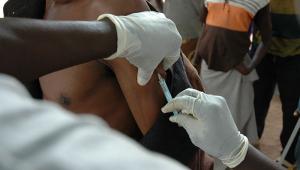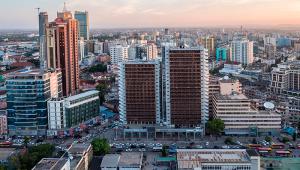The funding comes from the International Development Association, the bank’s fund for the world’s poorest countries, and will see Ethiopia receive loans worth $100m, while Uganda and Djibouti will get $50m and $20m respectively, all at low to no interest.
A $5m grant will also go to the Intergovernmental Authority on Development, an eight-country trade bloc covering the Horn of Africa, Nile Valley and the African Great Lakes.
World Bank president Jim Yong Kim said that, while the world’s attention has been focused on refugee crises in the Middle East, much more needs to be done to help African nations respond to the forced displacement of millions of people.
The Horn of Africa currently hosts around 9.5 million forcibly displaced people, of whom 6.5 million have become displaced within the region, while 3 million are refugees.
Ethiopia has Africa’s largest refugee population, and Uganda the third largest. In Djibouti refugees are beginning to arrive in large numbers.
This puts a heavy strain on already weak public services and economic opportunities in a region that suffers weak governance, high insecurity, environmental degradation, endemic conflict and other challenges, the bank said.
It added that the funds aim to improve access to basic social services, economic opportunities and environmental management for communities hosting refugees in target areas of the three countries.
It is the first phase of a larger programme that will include other countries affected by forced displacement, which Makhtar Diop, World Bank vice president for Africa, described as one of the “most daunting challenges of our time”.
“Africa hosts around a quarter of the world’s displaced,” he explained. “The burden falls largely on the host countries. With this support, we are looking beyond humanitarian assistance to long-term development solutions.
“It will help host communities become more resilient, facilitate the social and economic integration of refugees and internally displaced people, and stimulate local development. The project is a win for all.”
The World Bank has also announced a further $23m in concessional financing for Djibouti as part of an updated country strategy that aims to address vulnerability and improve service delivery.
The funds have been earmarked for various projects in support of rural development, water mobilisation, social safety nets, governance and the business environment and energy access.













